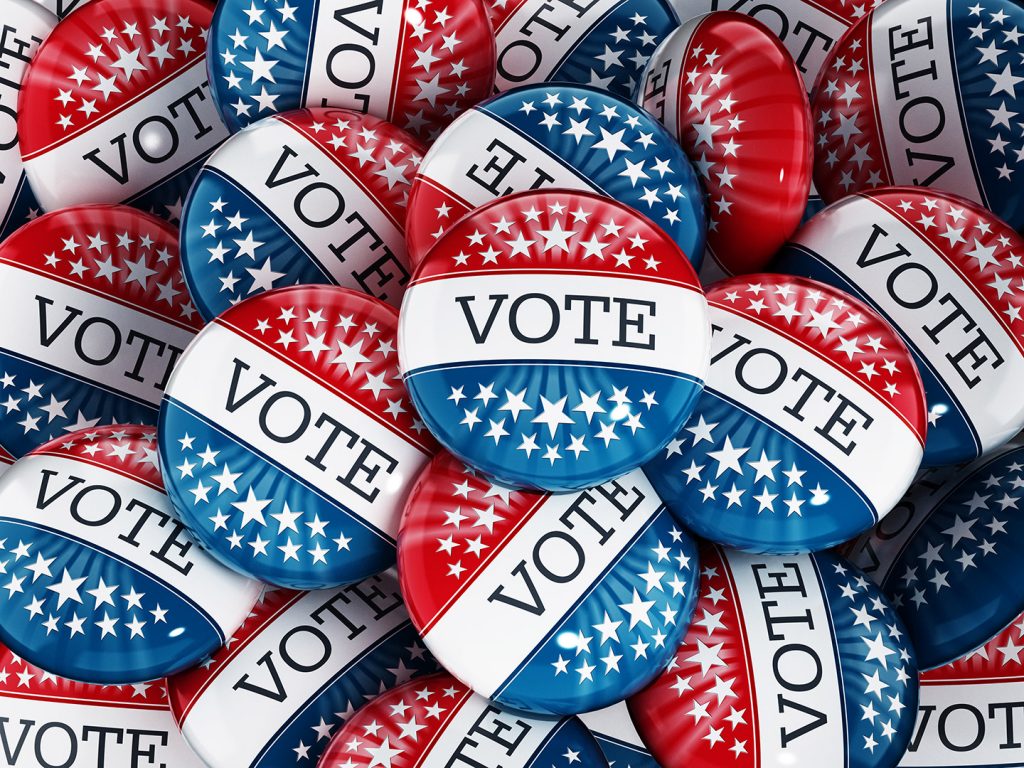
When Democrats won their smashing victory in the 2018 midterms, they did so in the face of a wave of GOP-led voter suppression efforts. Those schemes certainly weren’t new – Republicans across the country have fought to restrict access to the ballot for years, knowing that it’s often their easiest path to remaining in power.
Democrats, however, have finally committed to systematically fighting voter suppression efforts, recognizing that it’s impossible for them to gain and exercise power if the most reliable members of their coalition are often prevented from voting.
It’s no coincidence, then, that when Democrats officially took control of the House of Representatives in January their first major legislative initiative – HR 1 – was aimed at reforming how Americans across the country go to the polls. The bill, the “For The People Act,” includes a number of significant electoral reforms, including major improvements to the cybersecurity of the nation’s electoral infrastructure.
What’s in the For The People Act?
Shortly after the midterm results came in, Democrats made clear their first priority – their HR 1 – would be an elections bill. Those plans were temporarily affected by the government shutdown, but House Democrats moved quickly to introduce the For The People Act once the government re-opened.
HR 1 includes the following reforms:
- Automatic voter registration across the country (currently, a handful of states have this provision), as well as same-day voter registration
- Ensuring convicted felons who serve their full sentences have their voting rights restored
- Provisions banning states from placing restrictions on mail voting and requiring states to send absentee ballots at least 45 days before an election
- Requires at least 15 days of early voting before federal elections
- Making Election Day a federal holiday
- Increased penalties for voter intimidation
- Limits on voter purges, such as those that likely affected the 2018 Georgia governor’s race
- Requires states to use paper ballots, long a priority of election security advocates
In addition to the election reforms, HR 1 features long-term Democratic priorities in governmental ethics and campaign finance. The bill seeks to limit foreign campaign contributions and end so-called “dark money” by imposing transparency standards on Super PACs and 501 (c) (4)s.
HR 1 requires presidents to disclose their tax returns (which all recent presidential candidates before Donald Trump had done as a matter of course). There are stronger rules for inauguration committees and new restrictions preventing members of Congress from serving on boards of private, for-profit organizations.
House Democrats began holding committee hearings on the bill in February, and leaders expect the bill to receive a full floor vote late in the month or in early March.
DOA In the Senate
To be clear, HR 1 will not become law in the next two years. With Republicans in control of the Senate and the White House, HR 1’s journey will end once it passes the House.
In contrast to Democrats and progressives whose outrage killed a Democratic gerrymandering proposal in New Jersey, there’s no resistance within the Republican Party to the GOP’s voter suppression efforts. Even moderate figures within the party have stayed silent in the face of these schemes.
Senate Majority Leader Mitch McConnell, a Kentucky Republican, has already labeled HR 1 a “power grab” and “The Democrat Politician Protection Act.” As such, HR 1 is unlikely to even receive a vote in the Senate. And even if it does, it will fail in that chamber.
The Political Future of Election Reform
None of that is a surprise to Speaker of the House Nancy Pelosi or other Democratic leaders. However, Democrats see a ready political advantage to pursuing a voting rights bill even in the face of inevitable defeat in the Senate.
For Democrats, voting rights legislation sits in a rare political sweet spot. The party’s House majority is built on an ideologically diverse coalition, ranging from Alexandria Ocasio-Cortez, a socialist from New York, to Dan Lipinski, a pro-life Illinois Democrat who opposed the Affordable Care Act and the DREAM Act. However, Democrats from across the political spectrum are united on voting rights, giving the party a chance to make a show of unity and cohesion.
In addition, protecting ballot access is the rare issue where Democrats believe the right thing to do is also the politically smart thing to do. Generally speaking, Democrats benefit from high voter turnout, especially since voter suppression efforts have their greatest effects on groups who already struggle to vote (and who tend to vote for Democrats). As a result, election reforms provide Democrats with the ability to help themselves while helping voters.
In addition, if Democrats manage to win the White House and the Senate in 2020, HR 1 (or something like it) will surely come up for more consideration. And it could represent a new Democratic administration’s best chance of scoring a legislative victory with a narrow Senate majority.



Leave a Comment